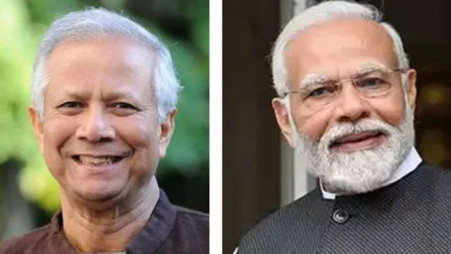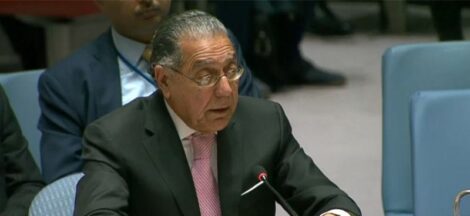Bangladesh Army Chief General Waker‑Uz‑Zaman has intervened to block an alleged plot by interim government head Mohammad Yunus to orchestrate a skirmish with India.
The plan, according to military and insider sources, aimed to ignite nationalist fervour and shift public attention from mounting domestic unrest within Bangladesh’s transitional administration.
Sources indicate that the operation was meticulously designed. It reportedly involved enlisting the Border Guard Bangladesh to adopt aggressive postures along the Indo‑Bangladesh boundary, backed covertly by army units. The expectation was that limited clashes with India’s Border Security Force would prompt a domestic consolidation of support around Yunus and distract from demands for early elections and structural reforms.
General Waker‑Uz‑Zaman, however, acted decisively upon learning of the scheme. He convened the country’s top military brass—chief of general staff, navy and air chiefs—and collectively they rejected the proposal. The army chief is reported to have instructed the BGB director‑general to ignore any orders from civilian officials directing border escalations, reinforcing that only he commands the paramilitary border force.
The move reflects deeper tensions between the interim government and the military. Yunus, a Nobel laureate installed after the ousting of Sheikh Hasina last year, has faced growing pressure from both the armed forces and opposition parties to schedule elections promptly. The Bangladesh Nationalist Party and sections of the army have urged a vote by the end of December; Yunus, by contrast, has proposed a window of December 2025 through June 2026, to allow for institutional reforms.
Beyond electoral timing, a rift has emerged over strategic decisions like establishing a humanitarian corridor to Myanmar’s Rakhine State. General Waker‑Uz‑Zaman opposes the initiative, warning that sovereignty and chain‑of‑command principles could be compromised, insisting only an elected government should navigate such policies.
The army chief has also made clear his belief that Bangladesh’s military should neither provoke border hostilities nor operate at the behest of transient political authorities. Defence analysts note this stance signals a recalibration of civil–military boundaries, as the army asserts institutional autonomy during the transition.
Political factions in Dhaka responded swiftly to Waker‑Uz‑Zaman’s actions. The Bangladesh Nationalist Party called the aborted border strategy “dangerous” and warned it could backfire on national stability. Rangy voices from student groups and activist networks, who initially supported Yunus’s reform agenda, now express doubts about his method and insist that elections should proceed without delay.
Internationally, the episode heightens scrutiny over Bangladesh’s shifting foreign policy posture. Under Yunus, Dhaka has pursued closer engagement with Pakistan alongside outreach to China—actions that have unsettled India. India’s reaction has been cautious; New Delhi has monitored developments closely but refrained from direct comment, while Bangladesh’s Foreign Ministry has downplayed tensions.
Meanwhile, public sentiment within Bangladesh is increasingly fractious. A sweeping security clampdown—dubbed “Operation Devil Hunt”—launched in February to detain supporters of the former Hasina government and opposition activists, has drawn criticism for rights infringements and intensifying civil unrest. Popular discontent is further fuelled by teachers’ and civil servants’ protests, and resentment over the banning of a major political party under anti‑terror legislation.
General Waker‑Uz‑Zaman has warned that the military will not engage in operations or corridors that could threaten sovereignty, while emphasising elections are essential to restoring democratic order. Observers suggest his intervention in defusing the border plot may mark a turning point in the relationship between Bangladesh’s interim government and its armed forces.
With national polls slated for April 2026, but under ongoing debate, the military’s growing role adds a layer of complexity to Bangladesh’s path ahead.




 Sibal accuses govt of shielding judge Yadav
Sibal accuses govt of shielding judge Yadav 